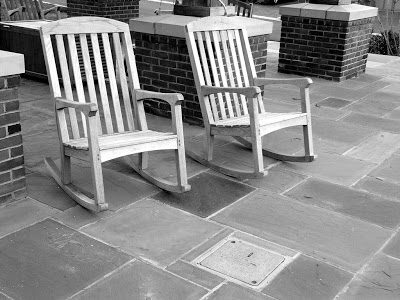After years of teaching high school in downtown Los Angeles, my wife accepted a job four hours away.
On top of my daily stressors of dealing with students and colleagues and deadlines at the school, I now moved to a tiny studio apartment, commuted to see my wife on weekends, and applied for hundreds of jobs, all while we were desperately trying to get pregnant after years of no success.
On top of that, I was stuck in a negative emotional response to my situation.
I spent my quiet moments not resting, but resisting, complaining inwardly that I was living someone else’s life.
Why do I feel dead inside?
I had always navigated life by emotion and intuition, and now I felt no access to this means of navigation. I was numb to both, buried beneath layers of frustration, struggle, and resentment.
Physically, mentally, emotionally, spiritually, I was at the end of my rope. All I felt I could do was tread water, barely. I was in survival mode. This hardly seemed “the abundant life” promised in John’s gospel.
When we come to the end of ourselves like this, there is an opportunity. To face burnout is to understand, we can’t live the way we’ve been living. We’re stuck in a holding pattern. A crisis.
The Greek word krisis, though, unlike our modern English usage, means, decision or judgment. It is not pure pointless suffering, but a means of change. Crisis is opportunity.
One of the first practical steps I took, even before immersing myself deeply in daily practice was praying the Psalms. This has, of course, been a monastic practice for centuries.
It was the lament Psalms at the time that held the deepest resonance for me.
As the Psalmist writes in Psalm 22:
I am poured out like water, and all my bones are out of joint.
My heart has turned to wax; it has melted within me.
Here are words that give voice to the weary.
In praying through the Psalms in the morning every day, I invoked a living tradition and was able to open myself to inner alignment with a transcendent reality.
There were hopes and dreams I had not let go of, deaths I hadn’t mourned. Much of my inability to move forward had to do with unconscious pain.
Instead of being refined by it, I kept myself chained to it.
Old relationships. Lost opportunities. Friends who had died. Life situations that had died.
To suffer burnout is to move to a toxic rhythm. With guidance and discipline, we can learn to find a deeper groove, and move to a life-giving rhythm.
Here are a few instruments that can help strike that rhythm:
- Realize that “this, too, will pass.” This is true of all external circumstances. The Eastern traditions call it impermanence. This can ease the load many of us carry around in burnout.
- Stop resisting the situation. We feed what we fight. Our internal emotional resistance to our situations saps vital internal energy that is needed to find new ways of living. There may be something that needs to be mourned and let go of before you can move on!
- Be aware of who you blame for the problem. Only you can control how you respond, both internally and externally.
- Cultivate inner peace. This can be praying the Psalms, a contemplative practice, or staying rooted in the moment. As one spiritual teacher asks: “what problem do you have right now?”
Daily practice prepares us for the storm when it comes. We’re building what Teresa of Avila called the interior castle brick by brick.
It’s usually the case that we confuse abundant life as ego fulfillment rather than opening ourselves to the life that is present all around us.
Practically, most of us can’t go on a week-long meditation retreat or even a weekend getaway. We’re often burned out for very real external demands. Cultivating practice reorients us and establishes right priorities. We discover we can say no.
The world doesn’t revolve around us as much as we think. We can take a step back. But we might have to start in the nooks and crannies.
For starters, you can set your alarm clock for 15 minutes early tomorrow. Find a quiet corner. Open up to Psalm 1. Read it twice. Then read Psalm 2 twice. If you can, read them out loud. The next day, read the next two. Or skip a day and notice the difference.
Build the interior castle. It’s fire-proof. Watch your skin start to heal.
Marc Thomas Shaw
Marc Thomas Shaw is a writer, speaker, and traveler on the contemplative path from San Diego, CA. He is married to an ordained Presbyterian pastor and enjoys putting his son back to sleep. You can visit his blog at www.marcthomasshaw.com.





